#pastoralism
Text
In drylands and montane systems, these are often what are called ‘non-equilibrium’ systems, driven by variations in rain or snowfall, rather than the population pressures of animals. When a drought occurs, for example, very often, annual grasses disappear, grazing is short, and animals are lost, but when the rain comes again, the system bounces back, and so do animal populations.
Concepts such as carrying capacity and stocking rate control, designed for stable grasslands in more temperate settings, are largely irrelevant in such highly variable environments. The traditional conservationist plea to return to a balance of nature simply does not apply. This makes regulating livestock populations according to fixed numbers for ‘conservation’ purposes inappropriate – as has been imposed on reindeer herders in Norway or Maasai pastoralists in Tanzania.
[...]
Rangelands, where pastoralists make a living, are ‘open ecosystems’, mixes of trees and grasses maintained by a combination of grazing and fire. These are highly dynamic ecosystems – savannas, parklands, montane rangelands, and so on – and are important on all continents. Yet they remain poorly understood as many assume that the ‘climax’ vegetation is always a closed forest. This has led some to argue for the planting of trees in rangelands.
The assumption is that these are degraded forests and planting trees can return the landscape to its ‘natural’ state, and in the process, carbon can be sequestered and sold. This is a big mistake, rooted in a poor ecological understanding. What is ’natural’ is, of course, unclear given these areas have been used for millennia.
Trees planted in such settings often die and tree planting projects have a dismal track record. Tree planting may not be the best method for sequestering carbon, even if above-ground carbon is easier to sell on offset markets, as grasslands and soils are massively important but poorly understood parts of the carbon cycle.
59 notes
·
View notes
Text
Fuck the government. Let's run away into the countryside wilderness, write some idylls, and make love to some shepherds and nymphs
#this is me#personal aesthetic#kaleb aesthetic#virgil#eclogues#bucolic#vergil#publius vergilius maro#idylls#cottagecore#cottage aesthetic#nature aesthetic#farmcore#naturecore#pastoral#pastoralism#light academia#light academia aesthetic#romantic academia#dark acadamia aesthetic#light acadamia aesthetic#light academic aesthetic#light academism#light acamedia#arcadia#forestcore#as you like it#dark academia#dark academia aesthetic#dark academia aesthetics
31 notes
·
View notes
Text
Summer transhumance (temporary nomadism moving the livestock to the summer pastures, on the highest parts of the mountains after the winter snows have melted).
This video shows the moment where the sheep flocks from Estac and Enviny mix with the flock from Llessui (all of them villages from the High Pyrenees, Catalonia). A shepherd gives the sheep to the shepherd who will take care of them all summer with the help of his shepherd dog. In autumn, this shepherd will bring the sheep flock down to the valley again, where the sheep will be distributed to their original farm.
Video by Marta Lluvich on Twitter.
#transhumància#tradicions#catalunya#estac#enviny#llessui#sheep#sheep flock#shepherd#pastoralism#nomadism#rural#farmcore#ruralcore#catalonia#europe#animals#mountains#landscape#transhumance
126 notes
·
View notes
Text
all these farming games are set in small towns, which makes them decidedly less cozy and wholesome if you’ve ever had a bad experience in a small overwhelmingly white town. i wish there were a countervailing cozy genre set in urban communities, where the community you join is an apartment building or an arts collective or a housing trust or SOMETHING. video game pastoralism is as toxic and delusional as every other version of pastoralism
at the very least do one of these games where you’re a farmWORKER instead of a farmOWNER. it’s cool driving fantasy walmart out of stardew valley, but give me a game where you drive the farmer out and run the farm as a collective
15 notes
·
View notes
Text
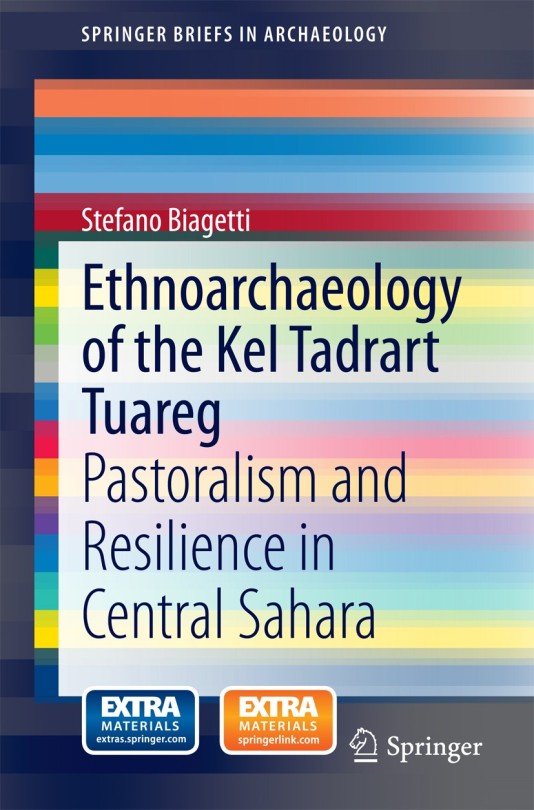
does anybody here have this book and wants to share the file with me? it was removed from zlibrary due to copyright violations...
Ethnoarchaeology of the Kel Tadrart Tuareg. Pastoralism and resilience in Central Sahara by Stefano Biagetti
#piracy#ethnoarchaeology#book request#ethnography#anthropology#tuareg#imazighen#amazigh#touareg#nomads#pastoralism#nomadic pastoralism#kel tadrart#archaeology#archeology#stefano biagetti#looking for books#berbers#north africa#sahara#central sahara#plaese????#moje#i guess#fuck copyright
12 notes
·
View notes
Text
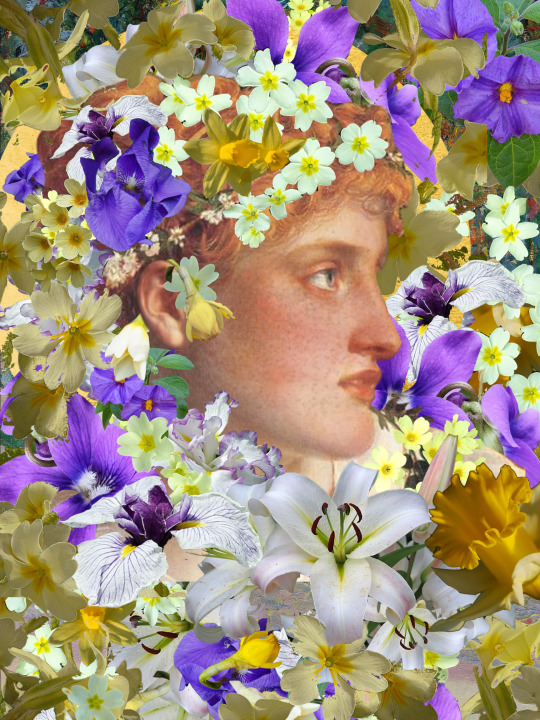
Perdita of Sicily and Bohemia
Princess, Daughter of a Shepherd or Shepherdess, Daughter of a King?
The Winters Tale. post - Act 5. Scene 3.
All but Perdita exit. She looks off.
Perdita speaks.
I wonder if there is more story here.
[a pause]
There is, of course. There always is.
A story cannot stand alone -
Not one line holds the next line back
For fear his time will not be shown.
A man writes words, woman recites
Here we go, never-ending plight
And yet I stand here,
Woman, wife, daughter, princess
And even now I wish for more -
Or else, perhaps. A shepherdess,
With the name of royalty.
[Another pause. She laughs without humor.]
A shepherdess! A shepherdess, or a princess?
Who can tell the difference now.
I stand here with red skin and calloused fingers
I use lanolin to treat them, but here!
Where are my sheep, my care?
Sicily’s cold coast holds me away
And my wool will be fine now -
Spun by someone far away,
Carded and combed and washed
By a woman I will never meet.
A farmer in the employ of my father -
My father, a man called Leonates - a king -
Not the shepherd of my upbringing,
Not my beloved carer, but a man in a castle
Who cast me away, doomed my mother to death,
At a glance which he now knows was nothing
Leonates claims me as his own daughter, now
But as an infant - fresh from the womb,
The most innocent of gods creatures
He set me to die, to be left for the wild.
And I am lonely, here - I have a husband, my dear, Florizel,
but I knew him by another name not weeks ago,
And I knew not of his father - the King,
Another king, who now calls me daughter
While my own father stands there, beside me,
Dressed in finery I could never have imagined in my youth,
My brother beside him, his own fine clothes that do not fit
The fool I know him to be.
Here, they too, are called kin -
Leonates calls my father ‘brother,’ my brother ‘son’.
My mother, a woman I knew not of and then believed to be dead in only a minute,
Now suddenly stands tall, marble come to warm life.
And a brother, too - not that which has been with me through my childhood,
But another, dead from when I was hardly a day old. Shall I mourn him too?
A child, so much younger than I am now, dead nearly all my life,
but with blood and lineage the same as mine. He fell with grief,
for the woman he called mother his whole life, and I wonder where my grief should be? Should it be long gone, with the rest? Should I be celebrating this joyous reunion?
I should, I know! I know, I know, I know!
And still there are more to know - Paulina, who must be my mother’s -
(‘the queen’, instead, for I cannot find it in myself yet to call her mother,)
Handmaiden, a woman loyal beyond words.
She embraced me upon recognition, gave me words of comfort,
And so I am grateful to her,
And the man Antigonus, her husband, whom they tell me is long dead,
Killed while saving my life. My life, worth that of this noble man’s.
But Paulina stands as if she is indebted to me - she bids me bow to my mother,
As if I was not mourning her death but a moment ago -
This, I think! I am told I have a mother, told she is dead, told we are to see her likeness, told she is alive
And now Leonates wishes us to speak
To know one another, our lost time -
Must I? Must I know this life?
I am happy with my love, and with the wealth my father and brother, the shepherds, have received
I would not deign to lack forgiveness, for the gift I have been given
In love, and wealth and family, both old and new.
But here I stand and I miss my sheep! One, I had raised since its birth
An ewe, by the name of Dorcsa - a light joke, a tease amongst friends.
Dorcsa now, I wonder, looks for me.
I know full well she does not - I know the nature of sheep,
So long as one is feeding them,
they have no wist for those who have fed before
So perhaps she looks not for me,
But I for her - I see her, and myself, a youth,
Embracing her warm coat, picking burrs out of the wool
which I would later help my father to carefully shear.
I had imagined I would do this - shearing and burr-picking
- And feeding and grazing and corralling -
For the rest of my life, and now I know not if I will do it ever again
It is hard work, for certain, but it is the work I know.
Will the calluses on my hands go soft?
Will my skill with the sheep waver?
Will I know no-longer how to create yarn from the raw wool,
will I remember only bits of my once treasured profession?
[A pause. She is imagining her sheep, and then she looks back towards where Hermione’s ‘statue’ had stood.]
I had dreamt of my mother, throughout my youth,
And yet even today, with Kings and Lords pronouncing the power of dreams,
I know that this visionary image was not the woman who has now come to life,
As a child, and, I must confess, even so recent, I did not picture
The Queen Hermione, who stands before me now and tells me I am her own.
I saw, in those dreams, another woman, a working woman,
who shared my freckled skin and sun bleached hair,
not the pale visage and carefully arranged locks of the Queen,
and this woman, my imagined mother,
wore a crown of daisies, not gold, as Hermione does even now,
As the man my father Leonates takes her away from this old house.
I am old enough now, I know now well enough,
That this was not some ought but natural vision
But only the imagination of a youth
Who had never known from whose breast she came.
Somehow, though, I think that woman from the dream
May have made more sense as the mother to me,
A woman who now stands as a Princess - in two ways,
That of Bohemia and that of Sicily!
And yet wishes for the fields and labor that she has always known.
My new father-in-law, at the feast which I hosted,
Which seems ages ago now, in my lost home of Bohemian fields,
Said that I appeared noble, despite my poor family.
“She smacks of something greater than herself,” he said,
When he did not think I could hear, “Too noble for this place,”
He called me, and I heard, and at the time, I thought it a compliment.
I am noble, I had thought, while I danced like a child, I do appear great.
Now I think of how he must have meant it - a girl pretending,
Imagining she could be good enough, noble enough,
to marry the Prince to whom I am now wed.
Well it is alright now, Polixenes must have said,
now that I know from whose loins she came.
The noble Leonates,
who would cast an infant away for no crime of its own,
who would send his noble wife to prison because of an anxious thought.
It is his daughter, his offspring, who may marry Florizel,
Not the daughter of the poor Shepherd,
Who would find a baby alone and take her in with no question,
Who would raise her as his own, with all the love in his heart.
I told Florizel, back in Bohemia,
“I told you so,” I told him,
That nothing good could come of our relationship.
I told him, “I’ll queen it no inch farther,
But milk my ewes and weep.”
And now I do not weep, and I am without my ewes,
And I am likely to someday be Queen,
Alongside the king of that man I met by chance,
When I thought my life would be only ewes and pastures.
So now I stand here in this empty hall.
Soon enough I shall rejoin my family -
those who have lived by that name for many years,
and those who have not.
But for just a moment I will mourn.
The shepherdess Perdita, who is named for loss,
With the red cheeks and freckled skin and mess of hair
And the shepherd family and the rural home and the sheep named
In gentle teasing of friends.
And I will allow her to leave, sail away on the west wind,
Back to her rolling hills and her sheep and her childhood,
As I step towards the Princess of Sicily and Bohemia.
I wrote / made this for class lol but I was proud of it. Perdita is a character in Shakespeares The Winters Tale, who is a princess abandoned by her royal father as an infant and raised by a shepherd and his son. At the end, she has very few lines but basically seems to just accept her new life, and I wanted her to have something to say - my first stage direction here is meant to sit at the very end of the play.
I photoshopped the image myself - it's from a painting by Frederick Sandy's that's just called Perdita. The flowers are all ones she mentions in (one of? I can't remember) her first appearances in the play.
I wrote a bunch about this because it was my final project for this class, but it's mostly rambling so I didn't put it here lol, probably already rambly enough.
#writers#shakespeare#the winters tale#perdita#pastoral scene#pastoralism#romanticism#my writing#my artwork#:)#does this count as digital art (me photoshopping real art)#poetry#soliloquy#my bs art
5 notes
·
View notes
Text
A few days ago I had the terrible thought that in playing Stardew Valley I was engaging in the same pastoralism as Marie Antionette and the romantic art movement.
But I dare to say that I - that we do not.
Of course having a fun game to distract you from the existential dread of late stage capitalism is not a bad thing.
I also don't think that pastoralism is wholly bad either. It was patronizing af, but also understandable. During the industrial revolution this art recognized that whole industries were falling away, that livelyhoods were being destroyed and saw the alienation that working in a factory brought (See the Podcast It Could Happen Here on the Luddites).
I don't have a problem with Marie Antionette's toy cottage either. In a vacuum. Monarchy is the problem.
And Stardew Valley doesn't try to tell us that farm labour is somehow more pure or philosophically meaningful than other work. It's hard. You're broke. You never have enough time. Every piece of equipment that makes your chores easier is earned.
I'm especially fond of the time mechanic. Half a day to do your chores, hours to get into the village and then the person you wanted to talk to is nowhere to be found anyway. And everything is just so exhausting. Feels a little like living with autism honestly.
I have personal experience with a Streuobstwiese, a southern german style of supplementary farming that is basically just a meadow with some fruit trees and berry bushes. The idea is that you produce hay for some animals you may have (rabbits, chicken, goats) and that you sell the fruit for profit to the local beverage company. Also maybe a vegetable garden and a place to spend summers with the family.
It was hard work. It was unsatisfying work. We were at the mercy of forces beyond our control. It could only ever be extra income because we could never depend on it producing anything at all.
I see a glimse of that hardship in Stardew Valley. Even if it's a game around fun and achievement, where plants generally grow as they're suppost to, there are no heatwaves or hailstorms that kill a whole regions harvest and you don't have to use pesicides to keep the worms out of your apples.
Anyway, that's just my thoughts. I'm fairly new to Stardew Valley, so it's possible I misunderstood the messaging.
Also there's something to be said how much about what we spend our free time with is about our longing for unalienated labour. I may come back to this.
6 notes
·
View notes
Text
That post about Zizek saying the Sound of Music being fascist because they want to protect their pastoral home from the urban nazis. I wonder if by that logic Miyazaki is considered fascist because of his worship of pastoralism. Obviously, he’s not since through out his work his pacifism and other views show through. But still, I think nowadays if you twist words and concepts enough you can make anything sound plausible no matter how bullshit it is.
33 notes
·
View notes
Text
why is religious Christmas imagery all so joyful and pleasant? where is the inherent horror of the birth of Christ? A mother is handed her newborn child, wailing and innocent. Her hands come away sticky. Red. Simply by giving her son life she has already killed him. He is doomed from the beginning. Her love will not save him from suffering. Because the thing cradled in her arms is not a baby, it is a sacrifice: born amongst the other bleating animals whose blood will one day be spilled in the name of what demands it. the night is silent with anticipation. Mary, did you know? That your womb was also a grave?
#instant conversation enders for my multiple youth pastor cousins#don’t say it (I’m gonna say it)#The Child is The Price#but i mean come on#as someone who isn't actually even christian the real-life historical version of this is still cursed as fuck#i mean we know that jesus was a person who existed. whatever circumstances he was born in#its terrifyingly ominous to imagine being so unaware of the affect your child will have on the future of humanity#time itself will one day be counted around your birth of him#and all because he will suffer an excruciatingly painful death that you will not be able to prevent#not only that. but regardless of his or your intentions#regardless of whether there is a god#for millenea unfathomable millions will have blood spilled and will spill blood in his name#atrocities will be committed that you cannot even conceive of#and all on his and your behalf#you love your child. its beautiful. but there's horror in what you've done. because everyone else will love him too#and what's more dangerous than that?
118K notes
·
View notes
Text
Italowie Creek Walk
We drove the 30 or so kilometers on the Gammon Ranges Road from the Nudlamutana Hut to the Italowie Gap campsite going past Balcanoona Station and the nearby Echo cliffs. I wandered around the Gap taking photos of the traces of pastoralism before we started the walk to the gorge around 10am. The plan was to reach to Italowie Gorge around lunch time, then make our way back to the campsite.
The…

View On WordPress
0 notes
Text
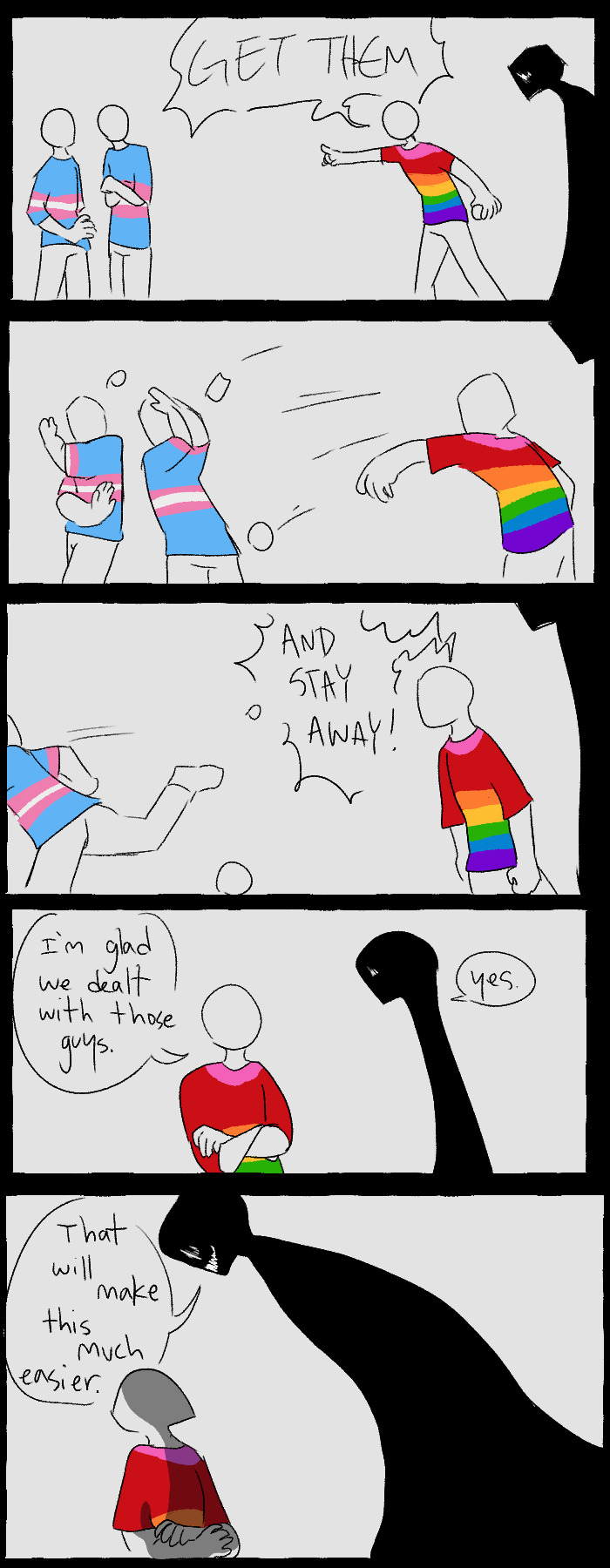
First they came for the communists, and I did not speak out, because I was not a communist...
#em draws shit#art#comic#the caption is a quote from ''first they came'' by pastor martin niemoller#transphobia
30K notes
·
View notes
Link
A simplistic, generalised narrative about livestock and animal products is misleading and dangerous. It fails to differentiate between livestock systems with major impacts and those with relatively few. It does not address questions of climate justice. It doesn’t ask about who lives on, from, and with the territories designated for carbon-focused ‘restoration’ projects. And it doesn’t take into account the fact that animal products are vital for nutrition in poor communities around the world — places where crop production is not possible in particular.
In many parts of the world a reduction in animal-source foods is indeed essential for improving diets and health. Reducing industrial livestock farming should be a top priority: for climate, environmental and animal welfare reasons. But, as explained in previous sections, intensive, contained, factory farm production is very different from extensive or pastoral systems. Lumping them all together in a single anti-livestock narrative either lets industrial producers hide behind more benign systems of production, or forces marginalised pastoralists to bear the costs of a transition to a lower-carbon future, despite having contributed virtually nothing to climate change.
[...]
To tackle climate change we therefore need a wider, systems approach to assessment, and further research on what diverse livestock systems mean for emissions, rather than misleading ‘livestock are bad’ narratives. Flexible, mobile pastoral livestock systems are also crucial for climate adaptation. For example, pastoral practices can adjust to changed rainfall patterns. Adaptation is a core pastoral principle that can help people to live in a heating world.
In the end, choices about how to tackle the climate crisis are about both justice and science. So where should emission reductions be prioritised? Methane is increasingly seen as a ‘gas of concern’. We could achieve major ‘quick wins’ here by dramatically reducing or banning oil and gas exploration and fracking, which emit huge quantities of methane. In agricultural, reducing emissions from industrial livestock production needs to be prioritised.
It is a mistake to lump pastoralism and other extensive systems into new agreements about measurement, reporting and verification of greenhouse gas emissions. Global commitments on methane should focus instead on the big polluters: oil and gas production, landfills, coal mining and intensive ‘industrial’ livestock rearing.
212 notes
·
View notes
Text

The most well known of San Francisco's numerous pedestrian streets is that section of Filbert Street between Montgomery and Battery streets on the steep eastern slope of Telegraph Hill - the Filbert Steps. This pastoral enclave, which includes the cross streets Darrell Place and Napier Lane and the nearby Greenwich Steps, is dotted with cottages that are testament to the bittersweet challenge of cottage living.
The Cottage Book, 1989
#vintage#vintage interior#myfavorites#1980s#80s#interior design#home decor#Filbert Steps#staircase#garden#Telegraph Hill#San Francisco#Montgomery Street#Battery Street#pastoral#style#home#architecture
5K notes
·
View notes
Text

romance in the air ☁️💘 + some closeups under the cut!
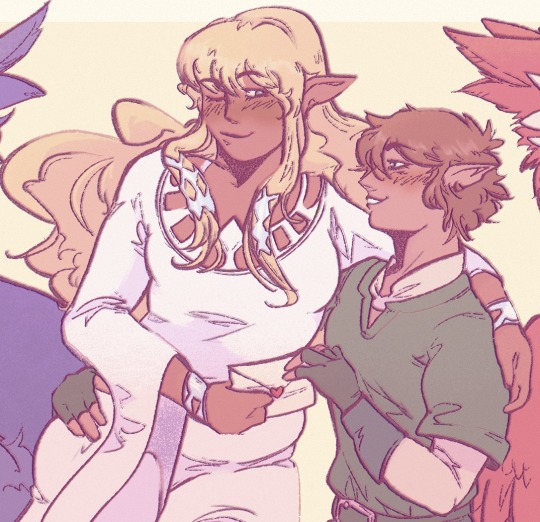
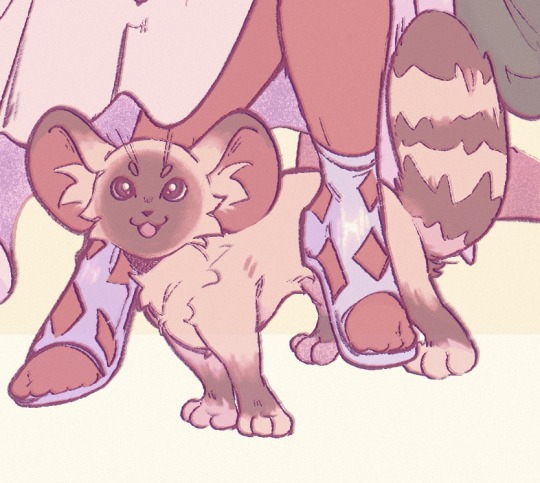
#zelink#zelda#link#skyward sword#loz#ss zelda#ss link#sksw#loz fanart#is this anything . i have no idea tbh i was kinda running on fumes drawing this#heavily based on francois bouchers 'love letter' ^_^ and pastoral pieces in general btw#which explains all the critters and definitely not bcus i just wanted to draw them. definitely not#u can kinda tell where i got lazy here but it was still kinda fun so wadda hell#my art
2K notes
·
View notes
Text
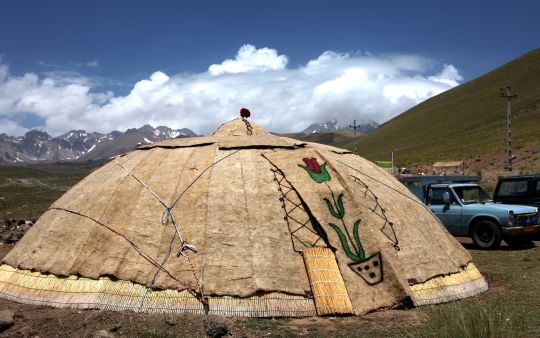
Felt tents used to be the traditional dwellings of Shahsevan families, here in Meshginshahr County, Iran. Mount Sabalan on the background, covered with clouds.
#nomads#anthropology#ethnography#pastoralism#tent#iran#Shahsevan#ardabil#sabalan#nomadic pastoralism#yurt#bc this is a subtype or a modification of a standard yurt#my upl
10 notes
·
View notes
Text

Dominic Leonard, from "No Dark Pastoral", pub. amberflora [ID'd]
#q#lit#quotes#poetry#typography#id included#spring#march#dominic leonard#no dark pastoral#amberflora#m#x
1K notes
·
View notes